This was on a friend’s Facebook page. Even though it is only one letter, there is a huge difference between “comma” and “coma.” Let the punctuation jokes begin.
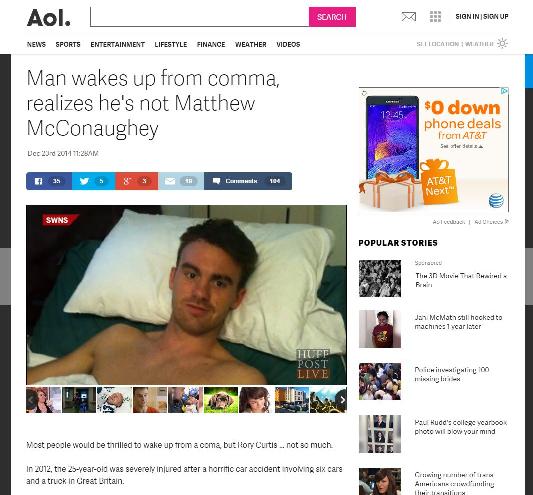
This was on a friend’s Facebook page. Even though it is only one letter, there is a huge difference between “comma” and “coma.” Let the punctuation jokes begin.

Wishing a very Merry Christmas to those of you who celebrate and as your gift I include a collage of some memes on the theme and a gift wrap with a slight problem, but there is a “t” in there somewhere!
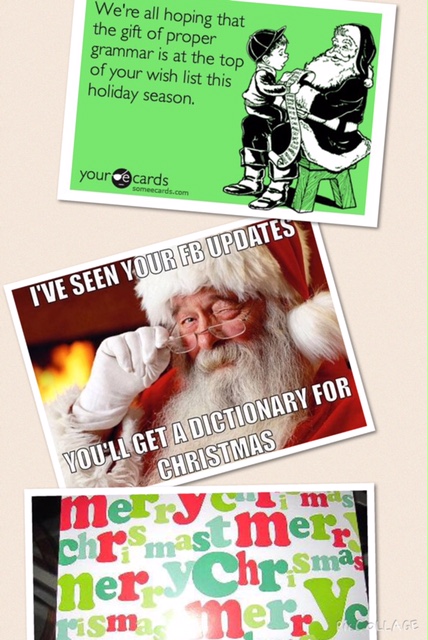
On a trip to San Francisco this past weekend, I had the opportunity to ride the bus. I love to read the signs on buses because I find a lot of “material” there. I was lucky this time as well. It took me a minute or two because I looked at the sign and finally figured out why it looked weird to me–“disabilities” is misspelled. On the plus side, they are consistent. I rode more than one bus that had the same sign with the same error. Shame on you #SFMTA!
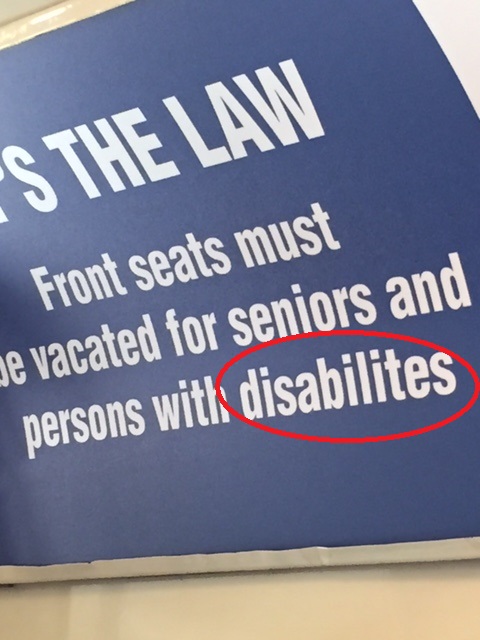
A blog reader forwarded this one to me. I can see the scene now:
Boss: Can you make a sign for those red band bananas
Worker: Sure thing, boss! You mean the bananas with the red tape that are almost rotten and should be banned?

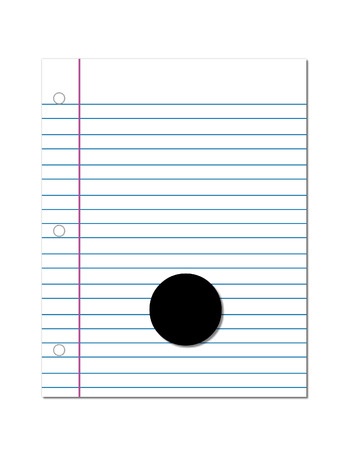
Copyright: nameinframe1 / 123RF Stock Photo
One would think periods are simple. Their function is to end a sentence. However, there are other uses for the period that we need to be aware of in order to use it correctly.
It is agreed that Arizona is the proper jurisdiction for this matter.
So periods aren’t quite as easy as they seem. Send your grammar and proofreading issues to proofthatblog@gmail.com so we can answer them in a future blog post.
Thank goodness for housebroken panini makers . . . and the entertainment provided by leaving letters off of words.
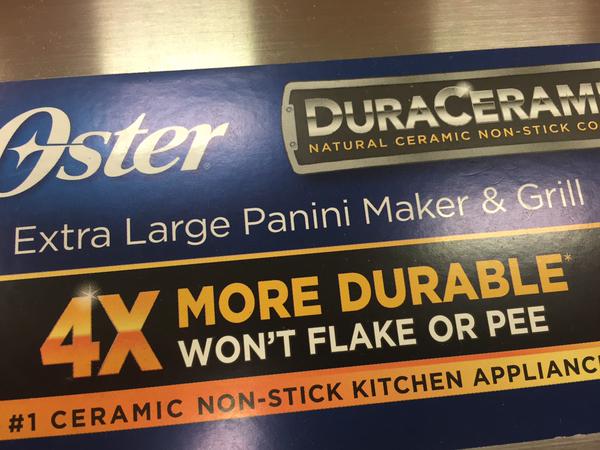
There are so many errors in this one sign I don’t think I could even get through them all. There are apostrophes used to make words plural, not enough periods, words that should be a single word divided into two words, capital letters where there doesn’t need to be or a small letter (if you want to be consistent) where a capital letter should be, misspellings . . . and my brain has now exploded.
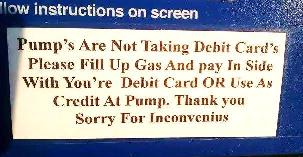
We all know that of all the writing you do, one of the most important is your résumé. It is a potential employer’s first impression of you and if there are errors, that isn’t a very good impression. I found this article at http://www.resumark.com/blog/andrew/top-15-of-the-most-hilarious-spelling-mistakes-on-resumes-and-cover-letters/ with some interesting résumé and cover letter errors.

Copyright: iqoncept / 123RF Stock Photo
20. “I have a known track record and excellent experience with accurancy and fixing erors”
19. “Strong Work Ethic, Attention to Detail, Team Player, Attention to Detail”
18. “My experience include filing, billing, printing and coping”
17. “Demonstrated ability in multi-tasting.”
16. “My work ethics are impeachable.”
15. “I have nervous of steel.”
14. “I consistently tanked as top sales producer for new accounts.”
13. “I am a perfectionist and rarely if if ever forget details.”
12. “Dear Sir or Madman,”
11. “I can type without looking at thekeyboard.”
10. “Instrumental in ruining entire operation for a Midwest chain store.”
9. “I am anxious to use my exiting skills”
8. “Speak English and Spinach”
7. “I am a Notary Republic”
6. “I attended collage courses for minor public relations”
5. “Following is a grief overview of my skills.”
4. “I’m attacking my resume for you to review.”
3. “I am experienced in all faucets of accounting.”
2. “Hope to hear from you, shorty.”
And the most embarrassing one to finish off our list:
1. “Directed $25 million anal shipping and receiving operations.”
While we may laugh (or, more likely, groan) about these errors, the fact that HR people took note and then passed the errors on is proof positive that people are actually reading things when they are determining whether or not to bring you in the door. Please make sure your résumé and cover letter are completely error free. Ask for help if you need it, but then remember that learning proper grammar is up to you and you should make an effort to continue to learn as the rules continue to change. It is easier than ever in this technology age to follow a blog or two or take an online course to keep your skills sharp. Do it!
This was on a recent local news station. There is a difference between peak, peek, and pique. Peak is the top, peek is to look slyly at, and pique is resentment or to offend. Obviously, they did not mean that the top is inside the Phoenix Amazon Fulfillment Center, they meant to look inside the Phoenix Amazon Fulfillment Center.
